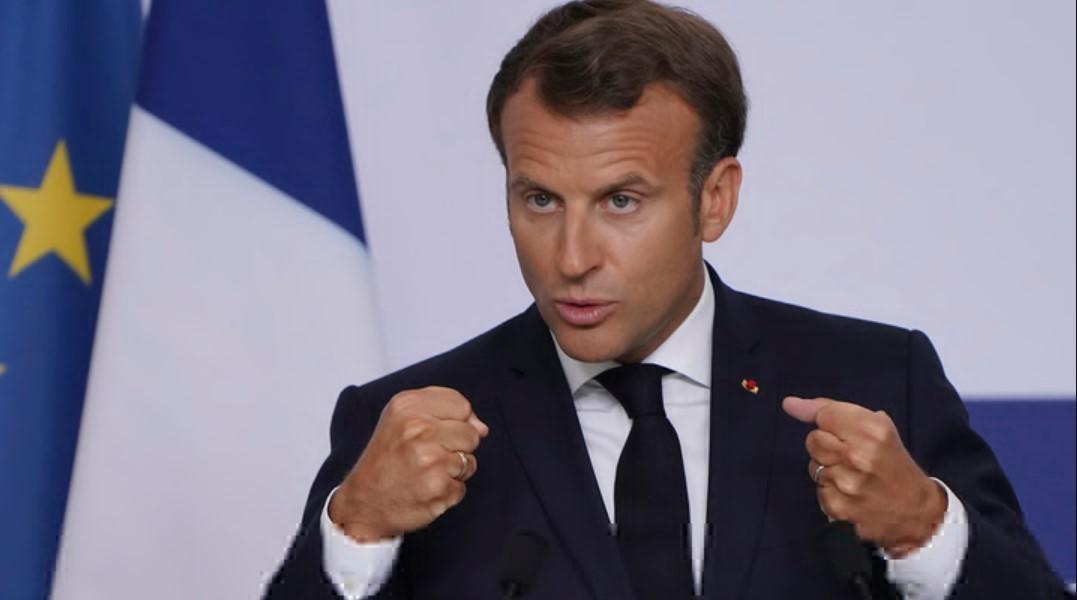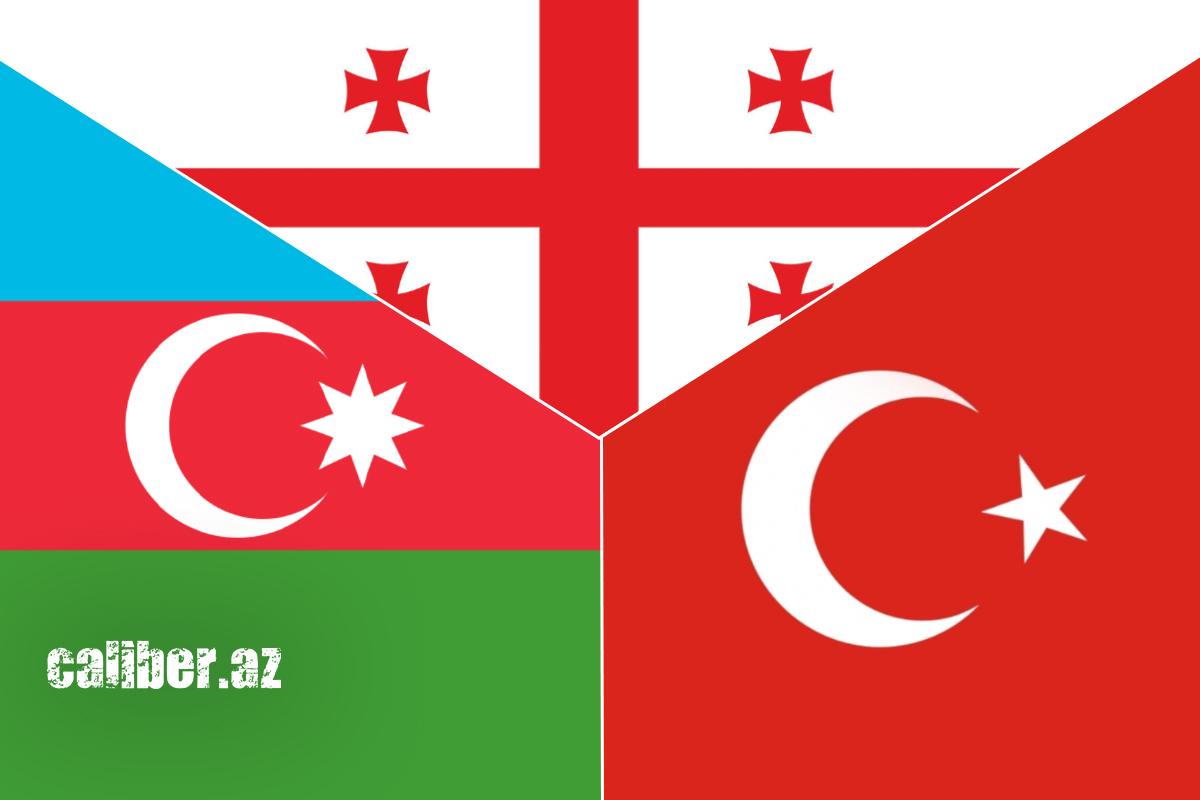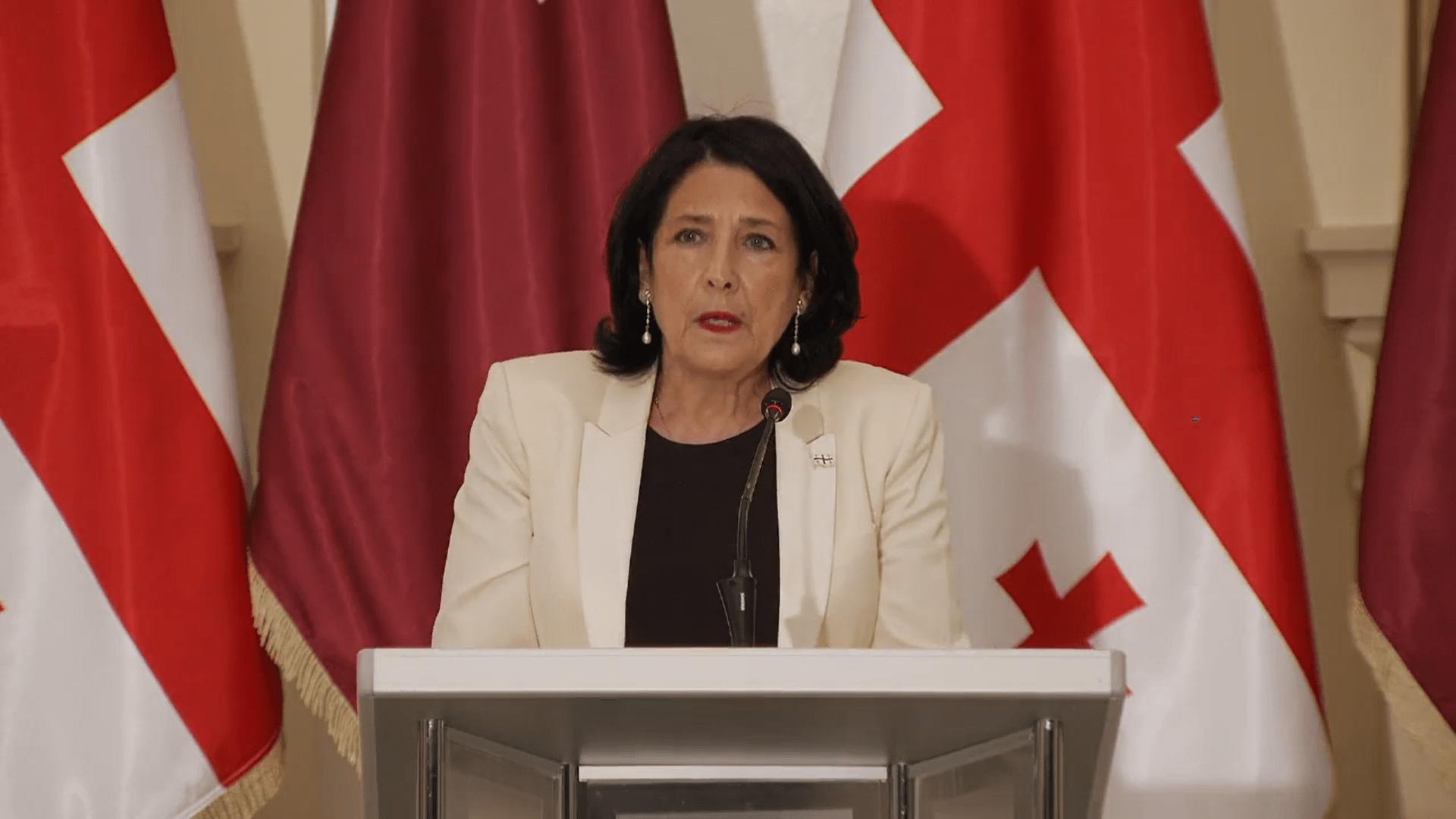Ex-President Zourabichvili's "evacuation" to the US France’s persistent pressure on Georgia
Ex-President Salome Zourabichvili, who failed to organize a "Maidan-style" coup in Georgia in the interests of the West, primarily France and the U.S., was "evacuated" by her "superiors." After the expiration of her term as President of Georgia, Zourabichvili became a participant in the 2025 Kissinger Fellow research program at the McCain Institute at the University of Arizona. As noted in the press release on the McCain Institute's website, "Zourabichvili will use her vast diplomatic, leadership, and policymaking experience to push for new elections and a democratic path forward in her country."
"It is a distinction to be offered the Kissinger Fellowship. In a time of struggle between autocracies and democracies, it is critical that we stand for democratic actors fighting on the frontlines, and Georgia embodies this struggle," said Zourabichvili, according to the McCain Institute's website, which is based in Washington. Given Zourabichvili's age, it can be assumed that she will gradually pass on the "fight" for the interests of the U.S. and France in Georgia to other agents of influence. Zourabichvili's current role at the McCain Institute is likely just a sinecure ahead of her retirement.
Meanwhile, just before the "evacuation" of the French agent Zourabichvili to the U.S., the crisis in relations between Georgia and France once again escalated. The cause of this was Paris itself, with President Emmanuel Macron making offensive remarks about a number of sovereign states, including Georgia, during his speech on January 6 at the annual meeting of French ambassadors.
"In recent years, Russia has increased its aggression and changed the nature of this aggression towards Europeans and other parts of the world. There has been a radical shift in Russia's behaviour in terms of its nuclear doctrine, which has become more stringent. We see this in Armenia, where Russia suddenly changed its allies and became an ally of Azerbaijan. We see this in Georgia — through the destabilization of the electoral process," said Macron.

Apparently, Macron's statement was directed against Georgia's current authorities. This was essentially confirmed by France’s ambassador to Georgia, Sheraz Gasri, who, in a post on the social media platform X, emphasized that Macron advocates for new parliamentary elections in Georgia: "As Emmanuel Macron makes support to democracy and freedom fighters a priority of our foreign policy, he commends the courage of demonstrators and of Salome Zourabichvili in Georgia and underlined that new elections could be a way out of the political crisis."
In response to Macron's statement and the French ambassador's comments in Tbilisi, representatives of the Georgian government reacted. "Let the President of France focus on Ukraine, which has been sacrificed with the goal of its destruction. I am talking about what is the real problem. I cannot comment on lies. I am commenting on the problem we all face today — the destroyed Ukraine," said Georgian Prime Minister Irakli Kobakhidze in a conversation with journalists.
Meanwhile, Speaker of the Georgian Parliament Shalva Papuashvili responded to the French ambassador's post regarding the French leadership's call for "new elections" in Georgia, making it clear that new elections are much more relevant in France.
"Not that I intend to interfere in French domestic politics but considering that 61% of the French support President Macron’s resignation and 50% want the dissolution of the National Assembly, new elections could be a good way out of the political crisis," wrote Shalva Papuashvili on the social media platform X. The Speaker of the Georgian Parliament based his statement on a survey conducted by Le Figaro, which found that 61% of French respondents supported Macron's resignation.
"When we hear discussion about new elections, it is, first of all, disrespectful to the Georgian people. At a minimum, they are disrespecting 1,120,000 citizens. This is a fundamental principle established after the UN was founded—that we must respect each other’s sovereignty…We did not achieve 33 years of independence through bloodshed just for various politicians from different countries to regularly interfere in our democratic process. The Georgian people clearly expressed their will on October 26. If Europe stands for anything, it is respect for the people’s will. Everyone must respect the will of the Georgian people," stated Papuashvili.
Thus, in relation to Georgia, France is clearly pursuing a destructive policy. Recently, it was carried out through its "former" subject, Salome Zourabichvili, who repeatedly tried to ignite a "Maidan" in the country. Now, France continues this through overt external pressure.
France neither wants nor is able to offer anything constructive and useful to Georgia and the Georgian people. After all, attempts to organize a "military transit" that contradicts Georgia's national interests to Armenia, which has become a French geopolitical stronghold and is actively armed by Paris, cannot be considered constructive. In essence, these actions are provoking a new war in the South Caucasus.
Georgia is far more interested in constructive cooperation with Türkiye and Azerbaijan, which allows it to leverage its transit potential and dynamically develop its economy. Moreover, Türkiye recently announced an extremely important project for the entire Black Sea region.

The gradual "shift" of population and economic activity towards coastal regions is a global trend. It has also affected rapidly developing economies such as Türkiye's. However, for a long time, the economic growth rates of Türkiye's Black Sea region lagged behind those of regions like Istanbul, Ankara, and the Turkish Aegean and Mediterranean coasts, largely due to logistical challenges. Along the southern Black Sea coast, from Samsun to the Georgian border, mountains often approach the shoreline, historically making land communication difficult. Due to the complex terrain along the entire Black Sea coast, a railway has yet to be constructed, and the lack of convenient bays and inlets hindered the development of maritime transport. This led to the relatively underdeveloped state of the Black Sea region of Türkiye, despite its favourable natural and climatic conditions, and contributed to the migration of the population to more rapidly developing centres of Türkiye, such as Istanbul and Ankara.
However, the Middle Corridor, which connects to the eastern Black Sea coast, objectively "requires continuation" on land. As a result, the intensive development of the Black Sea region in Türkiye became a vital necessity. In late 2024, the Turkish government announced the commencement of construction of a railway connecting Samsun and Sarp. Türkiye's Minister of Transport and Infrastructure, Abdulkadir Uraloğlu, stated that the 509-kilometer Samsun-Sarp railway will serve 10 million people.
Additionally, Turkish President Recep Tayyip Erdoğan, during the ruling party congress in the city of Rize, emphasized the large-scale project for the construction of the high-speed railway line Samsun-Trabzon-Sarp, which will ensure rail transportation between Ankara, the Black Sea region, and Georgia. According to President Erdoğan, once this project is implemented, the cities of Ordu, Giresun, Trabzon, Rize, and Artvin will be connected by the high-speed train line, which will start from Samsun.
Taking into account the further dynamic development of the Middle Corridor and the deepening economic cooperation between the countries through which this corridor passes, the Black Sea region of Türkiye, Georgia (especially its Black Sea regions), and Azerbaijan could soon form a "unified axis" of dynamic economic growth with immense global significance. However, there are certainly geopolitical forces that would like to hinder these clear prospects for Türkiye, Georgia, and Azerbaijan.
One such geopolitical force — France — has already begun to act. Not only does it seek to destabilize Georgia, but it is also trying to lay "mines" under the Middle Corridor and the project for developing logistics along the southern and eastern coasts of the Black Sea, which could later be "detonated" through separatism. In this context, the activity of former president and "former" French Foreign Ministry employee, Salome Zourabichvili, in the final days of her stay in Georgia, just before moving to the U.S. to work at the McCain Institute, is particularly noteworthy.

On January 2, Zourabichvili found time to visit the so-called "tent church" near Tbilisi Sea, which in the autumn of 2024 was set up by a man calling himself the "Bishop of Zugdidi and Colchis," Antipa Skhulukhia. He is a religious adventurer who, until 2012, served as a "bishop" of the Russian Orthodox Old Believer Church in Romania (the so-called Belokrinitskaya hierarchy), which specifically created the so-called "Iberian Diocese" for him. In 2012, he had a falling out with the leadership of this Russian Old Believer denomination. The Belokrinitskaya hierarchy in Romania abolished the "Iberian Diocese" and stripped Skhulukhia of his clerical status. Nevertheless, Skhulukhia continues to maintain close ties with Russian Old Believers and Russian propagandists, who position themselves as "Russian nationalists" and "supporters of the Russian world," including with Mikhail Tyurenkov, who works at the notorious "Tsargrad" (one of the most fervent apologists for Abkhazian separatism). It is quite strange that Salome Zourabichvili, who regularly criticized Russia and Russians, found time to visit the most ardent "apologist of the Russian world" in Georgia. After all, it is well known that Old Believers originally represented a "purely Russian ethnic" Christian denomination.
Thus, even here, the "former" employee of the French Foreign Ministry clearly attempted to "work" with those who, with external support, could ignite separatism aimed not only against Georgia but also against Türkiye. As is well known, any separatist instability poses a threat to large-scale transportation and investment projects. It is evident that French intelligence services, through their agents, including the recently active "former" French citizen Salome Zourabichvili in Georgia, continue their efforts both to destabilize the situation in the country and to plant potential "separatist mines" along the Black Sea coast — both against the Middle Corridor and the Samsun-Trabzon-Sarp project.
Vladimir Tskhvediani, Georgia, for Caliber.Az








